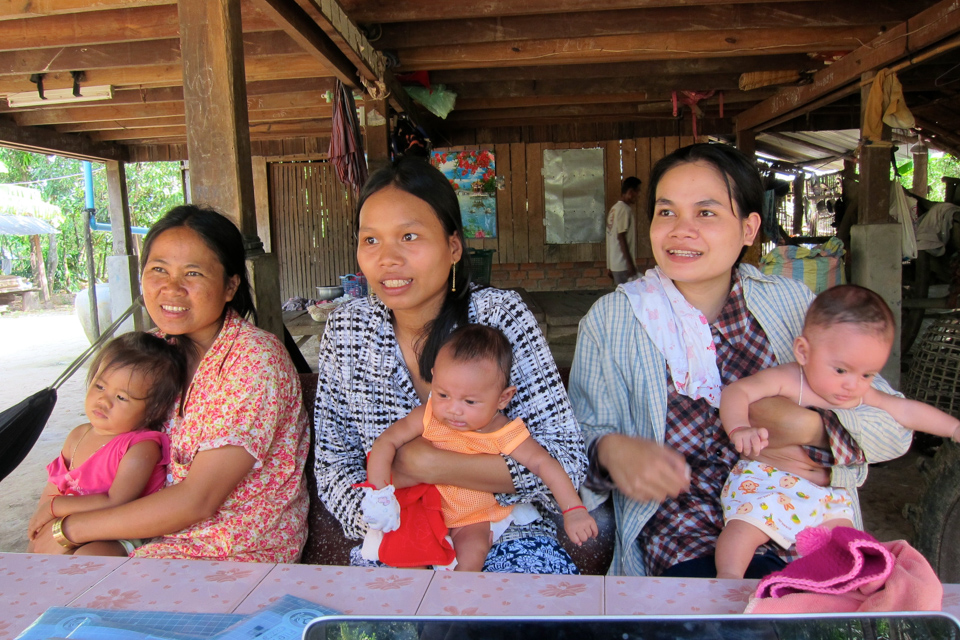Dangers of Child Feces
A new WaterSHED study shows many households are not disposing of child feces hygienically.
PRESS RELEASE – Dangers of Child Feces
Phnom Penh – Most families in Cambodia are unaware of the dangers of child feces according to a new survey conducted by the London School of Hygiene & Tropical Medicine and WaterSHED, a hygiene and sanitation NGO based in Phnom Penh.
The study of 130 households with at least one child under the age of five found nearly all families considered child feces cleaner than adults. But Lindsay Voigt, WaterSHED’s Behaviour Change Specialist, says this is a dangerous misconception that puts children at risk of diarrheal diseases and death. “There is evidence that kids’ feces have more pathogens, are more infective and more dangerous than adult feces. But there is also a widespread perception that child feces are somehow safer and cleaner because they come from kids.”
The study, conducted on households with a toilet, also found more than 60% of respondents did not consistently dispose of their child’s feces in their toilet. It also found although most households in the survey admitted to washing their hands after cleaning their child, there is evidence many caregivers did not consistently wash their hands after other critical points of contact with child feces such as disposing of the dirty diaper.
According to the World Health Organization, fecal contamination is responsible for nearly 800,000 deaths of children under the age of five every year but little attention has been given to the dangers of child feces. “If child feces are not discarded properly or caregivers don’t wash their hands with soap afterwards, fecal matter can be spread throughout the household environment,” says Voigt. “And the people most likely to come in contact with this fecal matter are kids themselves. This is a major problem in a country where more than 30% of kids are stunted, especially given the recent research linking poor sanitation and child stunting.”
The study strongly recommends sanitation interventions across Cambodia, specifically targeting children two years old and younger who are “least likely to use the latrine and most likely to have their feces disposed of unhygienically.”
“You need a latrine to dispose of child feces hygienically,” says Molly Miller-Petrie, the primary author of the study. “WaterSHED’s efforts to expand latrine coverage will be a big help.”
WaterSHED, a pioneer of the Hands-Off approach to sanitation marketing, is conducting further consumer research of infant and young children’s sanitation products such as potties and reusable diapers. The organization uses a human-centred design process to tailor sanitation and hygiene products to consumer preferences, and works closely with local private businesses to supply the market. To date, they have successfully enabled small businesses to sell more than 100,000 toilets across Cambodia.
Please click here to download the full study “Infant and young child faeces management and potential enabling products for their hygienic collection, transport, and disposal in Cambodia”.

